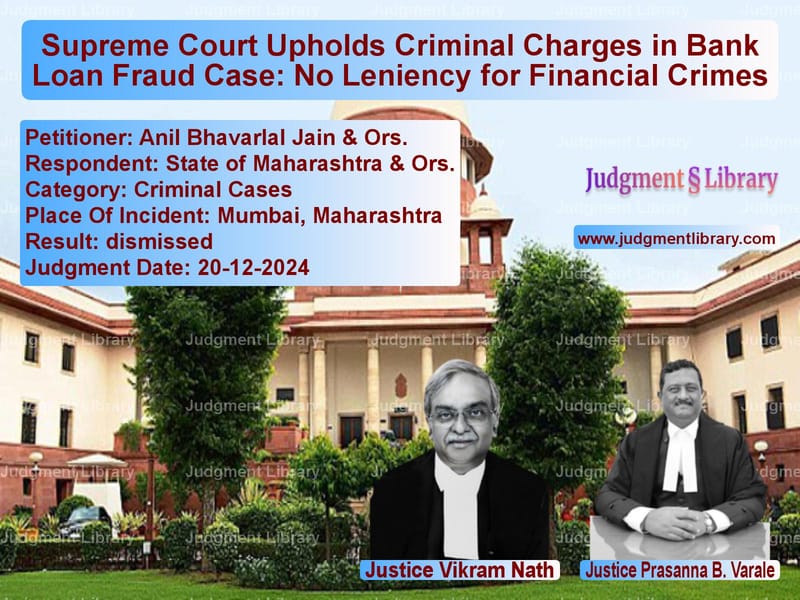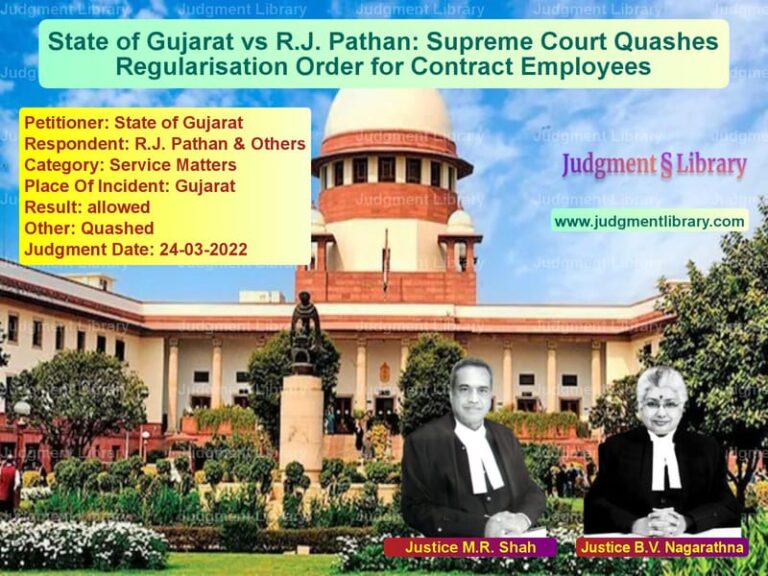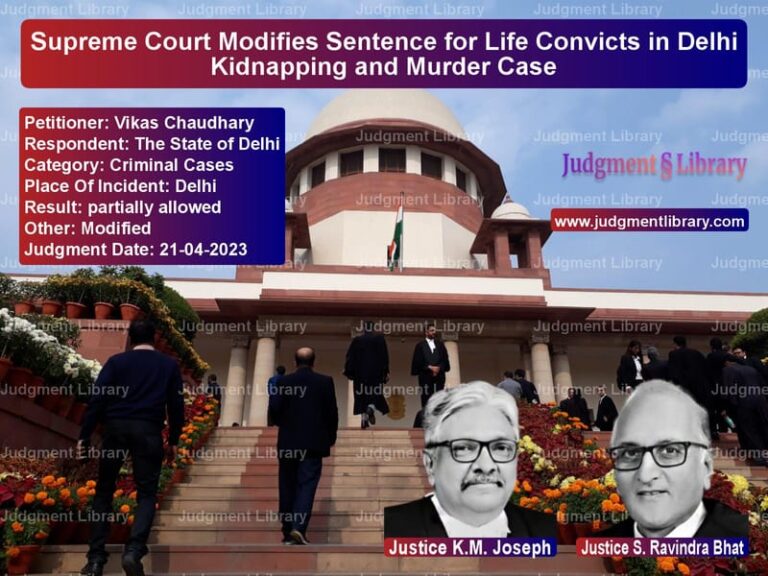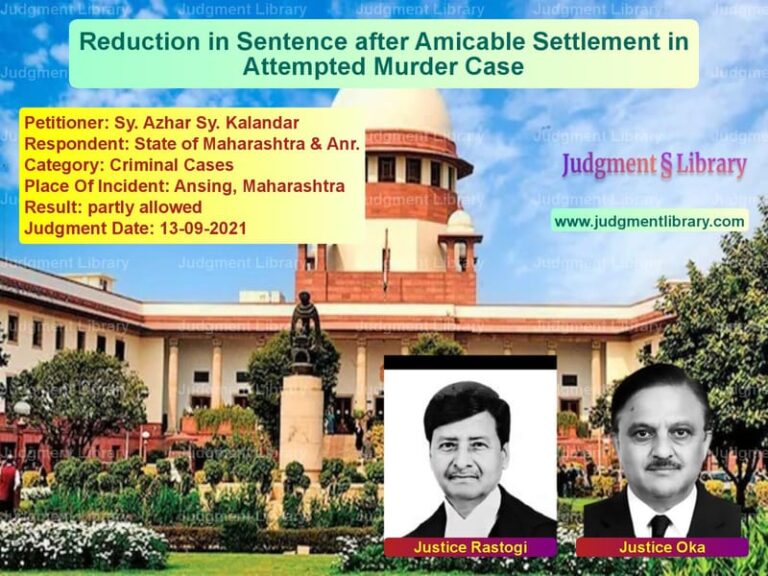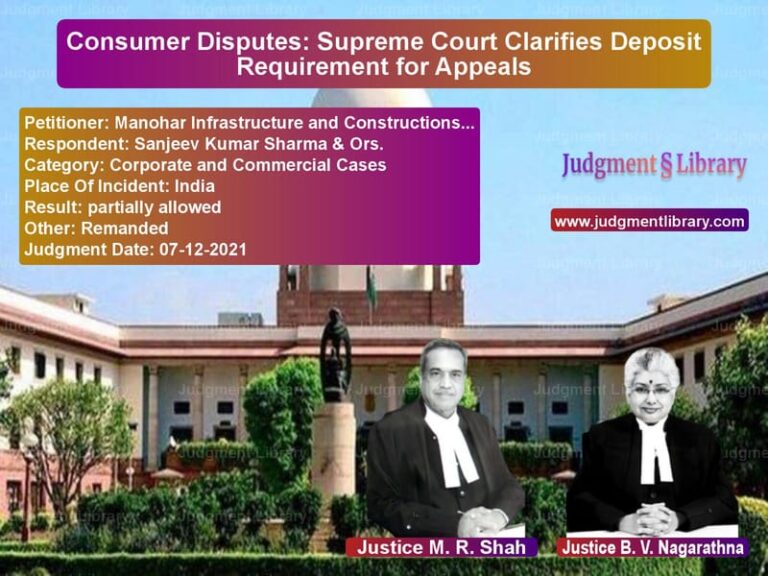Supreme Court Upholds Criminal Charges in Bank Loan Fraud Case: No Leniency for Financial Crimes
The Supreme Court of India has dismissed appeals seeking the quashing of criminal proceedings in a high-profile bank loan fraud case involving Anil Bhavarlal Jain & Ors.. The case pertains to allegations of financial mismanagement and diversion of funds amounting to crores of rupees, leading to losses for a public sector bank. The Court held that economic offenses impact the public at large and cannot be quashed merely because of settlements between private parties.
Background of the Case
The case revolves around a loan sanctioned to Sun Infrastructure Pvt. Ltd. by the State Bank of India. The key events in the case were:
- 2013: The company obtained building permits for a commercial land project.
- 2014: SBI sanctioned a loan of ₹50 crores to the company.
- 2017: The loan account was declared a Non-Performing Asset (NPA) due to non-repayment, with an outstanding balance of ₹23.86 crores.
- 2019: A one-time settlement of ₹15 crores was agreed upon with the bank.
- 2020: The Central Bureau of Investigation (CBI) registered an FIR against the company and its directors for alleged fund diversion and fraud.
Criminal Proceedings and Appeals
The accused moved the Bombay High Court under Section 482 of the Criminal Procedure Code (CrPC) to quash the FIR and chargesheet, arguing that:
- Their settlement with the bank rendered criminal proceedings unnecessary.
- There was no wrongful loss suffered by the bank.
- The case was based on a civil dispute rather than a criminal offense.
The High Court dismissed their petitions, ruling that:
- Financial crimes involve public interest and cannot be quashed based on private settlements.
- The allegations included fund diversion and fraudulent property valuation, which constituted serious offenses.
- Departmental inquiries against bank employees involved in the case had found misconduct.
Supreme Court’s Examination
A bench comprising Justices Vikram Nath and Prasanna B. Varale reviewed whether the High Court had erred in refusing to quash the case.
1. Economic Offenses Cannot Be Compromised
The Court reaffirmed that financial fraud cases affect the economy and public confidence in financial institutions. It stated:
“Economic offenses affect the financial system of the country and cannot be treated as mere disputes between private parties.”
2. Delayed FIR Does Not Weaken Case
The accused argued that the FIR was filed in 2020 despite the complaint being lodged in 2019. The Court rejected this, holding:
“Mere delay in filing an FIR does not vitiate the proceedings, particularly in cases involving financial fraud.”
3. Settlement Does Not Nullify Criminal Liability
The Court cited Gian Singh vs. State of Punjab, stating:
“Criminal cases with societal implications, including financial crimes, cannot be quashed solely on the basis of settlements.”
4. Fraudulent Loan Valuation and Fund Diversion
The Court observed that property used as collateral was initially valued at ₹107.7 crores in 2014 but was later reassessed at ₹3.45 crores in 2018. Such discrepancies indicated fraudulent activity.
Final Judgment
The Supreme Court ruled:
- The appeals were dismissed.
- The High Court’s decision to allow criminal prosecution was upheld.
- The case must proceed to trial.
Implications of the Judgment
The ruling has significant consequences for financial crime enforcement:
1. Strengthening Anti-Corruption Measures
The judgment reinforces that financial fraud cases will be prosecuted even if banks recover their losses.
2. Ensuring Accountability in Banking Transactions
It establishes that fund diversion and fraudulent valuations will not be tolerated.
3. Preventing Abuse of Settlement Mechanisms
The decision ensures that settlements do not become a loophole for avoiding criminal liability.
Conclusion
The Supreme Court’s ruling in Anil Bhavarlal Jain & Ors. vs. State of Maharashtra sets a strong precedent against financial fraud. By upholding criminal proceedings despite a settlement, the Court has reinforced accountability in financial transactions and strengthened India’s legal framework against economic offenses.
Petitioner Name: Anil Bhavarlal Jain & Ors..Respondent Name: State of Maharashtra & Ors..Judgment By: Justice Vikram Nath, Justice Prasanna B. Varale.Place Of Incident: Mumbai, Maharashtra.Judgment Date: 20-12-2024.
Don’t miss out on the full details! Download the complete judgment in PDF format below and gain valuable insights instantly!
Download Judgment: anil-bhavarlal-jain-vs-state-of-maharashtra-supreme-court-of-india-judgment-dated-20-12-2024.pdf
Directly Download Judgment: Directly download this Judgment
See all petitions in Money Laundering Cases
See all petitions in Fraud and Forgery
See all petitions in Corporate Compliance
See all petitions in Judgment by Vikram Nath
See all petitions in Judgment by Prasanna Bhalachandra Varale
See all petitions in dismissed
See all petitions in supreme court of India judgments December 2024
See all petitions in 2024 judgments
See all posts in Criminal Cases Category
See all allowed petitions in Criminal Cases Category
See all Dismissed petitions in Criminal Cases Category
See all partially allowed petitions in Criminal Cases Category

